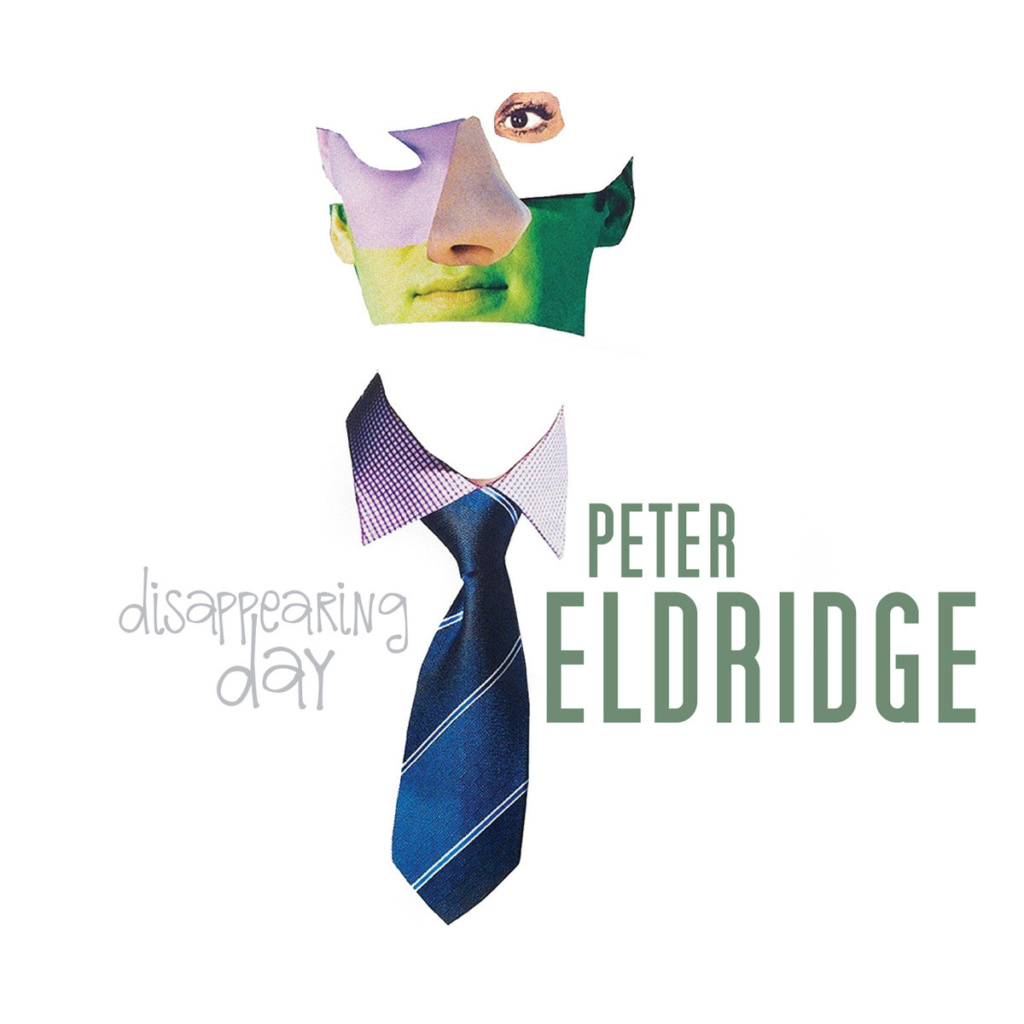 The songs created and performed by American vocalist/composer Peter Eldridge are sometimes hard to categorize. In a world where art – particularly music – is pigeon-holed to fit within narrowly proscribed parameters and specific genres for retail and marketing purposes, Eldridge cares more about pleasing his creative muse and his audiences rather than the antiseptic and fickle favour of commercialism.
The songs created and performed by American vocalist/composer Peter Eldridge are sometimes hard to categorize. In a world where art – particularly music – is pigeon-holed to fit within narrowly proscribed parameters and specific genres for retail and marketing purposes, Eldridge cares more about pleasing his creative muse and his audiences rather than the antiseptic and fickle favour of commercialism.
He’s been dubbed by critics and the press as a ‘melodic poet’ and a ‘musical alchemist’ and both are abundantly true. Eldridge’s latest album, the jazz/pop infused masterpiece Disappearing Day, is actually a work of remarkable thematic and tonal focus that still manages to take the listener on an interesting, immersive and sometimes intimate journey.
“The reviews have been really positive and I was a little concerned at first and kind of bottomed out emotionally in the weeks leading up to the release because I was wondering what I was doing, and that it was so personal would anyone care? But when the first reviews came out I was like ‘well, what do you know, they like it.’ And as much as you try not to take that stuff too seriously, because there’s so much subjectivity, I did get excited because they seemed to really get it. They understood what we were shooting for. In the past they would describe my stuff as ‘very eclectic’ and it would have a negative slant. This time they were calling it ‘very eclectic’ in a very, very positive way,” Eldridge said from his home in New Hampshire, where he has lived for the past few years after spending most of his working life in New York City.
“Certain tracks on the album are super intimate and really stripped down. And then there other ones that are pretty grand in their production where we added a lot of elements. The trio of the bass player Matt Aronoff, myself and drummer Wittman, who produced the album with me – that’s the consistent line through every track and the fundamental musical drive of the project. Then we added, hopefully, the appropriate bells and whistles later.
“I have a duo with Matt as well and a fair number of these songs were born out of that duo, and then Ben came in later. I did want to have some sort of percussion or drums or a hybrid – maybe not a full kit – something that kind of fell in the spaces. And Ben was just so respectful in that way. There are a couple of tunes where he gets to let it go a little bit. There’s a wild sounding, almost cinematic song called Driving to Town Late to Mail a Letter that gets pretty cranking at the end.”
The core trio are all busy, working musicians, who made the most of what time they could to craft the original songs or to work on their own interpretations of the few covers on the album, such as Paul McCartney’s Jenny Wren or the Coleman/Leigh chestnut Witchcraft.
“I don’t live in New York anymore, but the others do and we recorded it there for the most part. So the recording process was spread out over a period of time between everyone’s schedules. We had one day in the studio where we recorded eight or nine songs and then a month later we did a second day where we knocked off a bunch of songs. We picked the ones that rose to the top, while others fell by the wayside. There were four or five songs that were great, but really didn’t seem to fit into the tone of feel of this project and we will save them for later. These 12 songs felt like they belonged together, like they were part of a cohesive project and a collection of tunes that could really live together,” Eldridge explained.
A co-founder of the popular musical collective New York Voices nearly 30 years ago, Eldridge understands that in this day and age of streaming, downloading and outright theft of music, the concept of constructing a full album of music may be seen as passé in some corners of the industry, but it still seems to be a viable medium of expression in the more esoteric musical genres like jazz, blues and the singer/songwriter milieu.
of streaming, downloading and outright theft of music, the concept of constructing a full album of music may be seen as passé in some corners of the industry, but it still seems to be a viable medium of expression in the more esoteric musical genres like jazz, blues and the singer/songwriter milieu.
“I think for just about everybody except Beyonce, perhaps a new album is like a new calling card or a new business card. It’s a way of keeping yourself current in the marketplace and hopefully it’s a way to get to perform live. Now it’s a means to getting gigs and touring – that’s really the name of the game. Even friends of mine, singer/songwriters who I think are really successful and jazz singer friends of mine who are definitely in the top 10 of that world; they are still trying to figure it out. Not everybody is struggling, but they are trying to carve out a niche and trying to find a way to just remain active and working. I think that’s what a new album helps with,” he said.
“I get that there are real benefits to just having singles, especially in the pop world. But sometimes those of us who have been around remember when the major labels really did support an artist and there was more of a machine behind them 20 years ago. That is pretty much gone. The music industry went from being run by labels to music attorneys to PR people as far as who’s got the ball in the industry and who can make or break a career these days. It’s a fascinating business. It never ceases to amaze on one level or another, positively and negatively. It’s always like, ‘wow, I thought I’d heard it all,’ and then something new comes along.”
He also believes that the seismic shifts that the music industry has endured since the turn of the 21st century have an upside – it’s allowing visionary musical entrepreneurs to come to the fore like what once happened back in the 1960s and 1970s.
“I think there are younger versions of guys like Ahmet Ertegun [Atlantic Records co-founder] or Herb Albert [A&M Records co-founder] but the whole protocol of the business is just so different that you’re just spinning your wheels a lot of the time. But there are people out there and they are doing good work with more niche and boutique labels and publishing houses. Back in the day, the big acts would always sort of pay for the smaller acts and pay for, like, the jazz people to do their thing,” he said.
“Now it’s a free-for-all and nobody really knows what to do. But I know there are a few very smart people trying to figure things out. And with the evolution of downloading and streaming, everything is free and there are a lot of problems with publishing and songwriters getting their fair share. But I think it’s still all evolving.”
Eldridge grew up in a home where there seemed to be a plethora of musical options being played from one room to the next. The eclectic nature of these influences are reflected in his own career and own choices.
“I think my sister was playing a Joni Mitchell tune on her guitar when I was six or seven years old and I thought it was pretty cool. And then there was this moment that I remember like it was yesterday when my older brother Paul took me in his car and said ‘check this out,’ and he played me Steely Dan’s Pretzel Logic on the stereo. I just remember, at seven or eight, my world being rocked. The Beatles were important to me, but if I had to narrow it down to my three most inspirational influences it would be
Joni Mitchell, Steely Dan and Stevie Wonder,” he said, adding that when asked about his own style, he calls it sophisticated singer/songwriter music.
“And I don’t even think that’s a particularly great elevator pitch, but at least it puts it in a particular bag – one that gives you a sense of what I do. I did another interview recently where the woman said when I sang Witchcraft on this album that I was really a jazz singer. I thought that was really cool and thanked her. I am grateful to hear that but I don’t think of myself as jazz with a capital J. I do love it and it has been a big part of my life and informs what I write, but I also just love pop music and Joni Mitchell. I do sort of straddle this weird line between jazz and a lot of other kinds of music for sure.”
Eldridge is also a music educator of some note, working for more than two decades in the graduate jazz voice department at the Manhattan School of Music before moving on to the voice faculty at the prestigious Berklee College of Music in Boston. He also did a turn as the artist-in-residence at Western Michigan University.
“When it comes to the state of the music business I try to be as honest with my students as possible. I always say if there is something you like to do as much as this, run to that world faster than the speed of light. But if they are like me and feel compelled to do music – that they don’t care if they starve, or whatever, they just really want to do it – I say to just find your way and the opportunities will happen. People still do work in this business and they tour and it is possible to make a living. But it’s a tricky business, there’s no question about it,” he said.
“And it’s a good idea to be versatile and adaptive and be in as many projects as possible. You scratch out a way to make it all work. A lot of people, to this day, even with New York Voices having a certain level of success and all that I have done on my own; people assume that people like me are rolling in dough. Well, not to burst your fantasy, but let me tell you it is difficult.”
With a busy schedule between his various musical projects and his teaching, extensive touring is not always possible for Eldridge, but he is looking forward to getting up to Canada as soon as possible.
“I have done a lot of workshops and worked with a lot of singers from Canada over the years. When I was at the Manhattan School of Music I used to do a video master class, so I would be at the school in front of a camera and I would hear singers at schools like McGill in Montreal. I was always impressed with the quality of what’s going on up there,” he said.
“And New York Voices has been to Canada quite a bit. I just think it’s pretty cool what’s going on in that part of the world music wise. My stuff is a little all over the place in some ways and the people I have worked with are mostly jazz singers and there’s a real understanding of the art form up there. There’s a real knowledge of the history. And that’s great.”
* Jim Barber is a veteran award-winning journalist and author based in Napanee, ON, who has been writing about music and musicians for a quarter of a century. Besides his journalistic endeavours, he now works as a communications and marketing specialist. Contact him at jimbarberwritingservices@gmail.com

